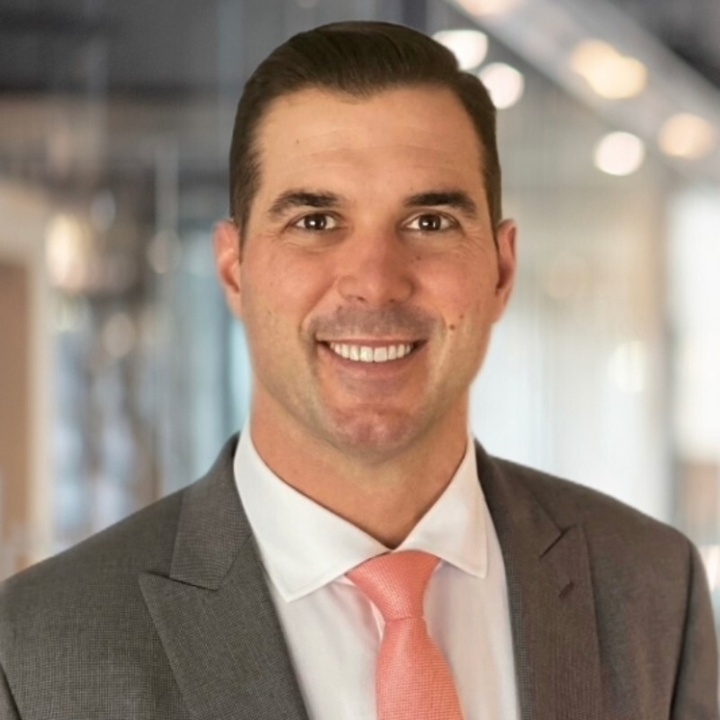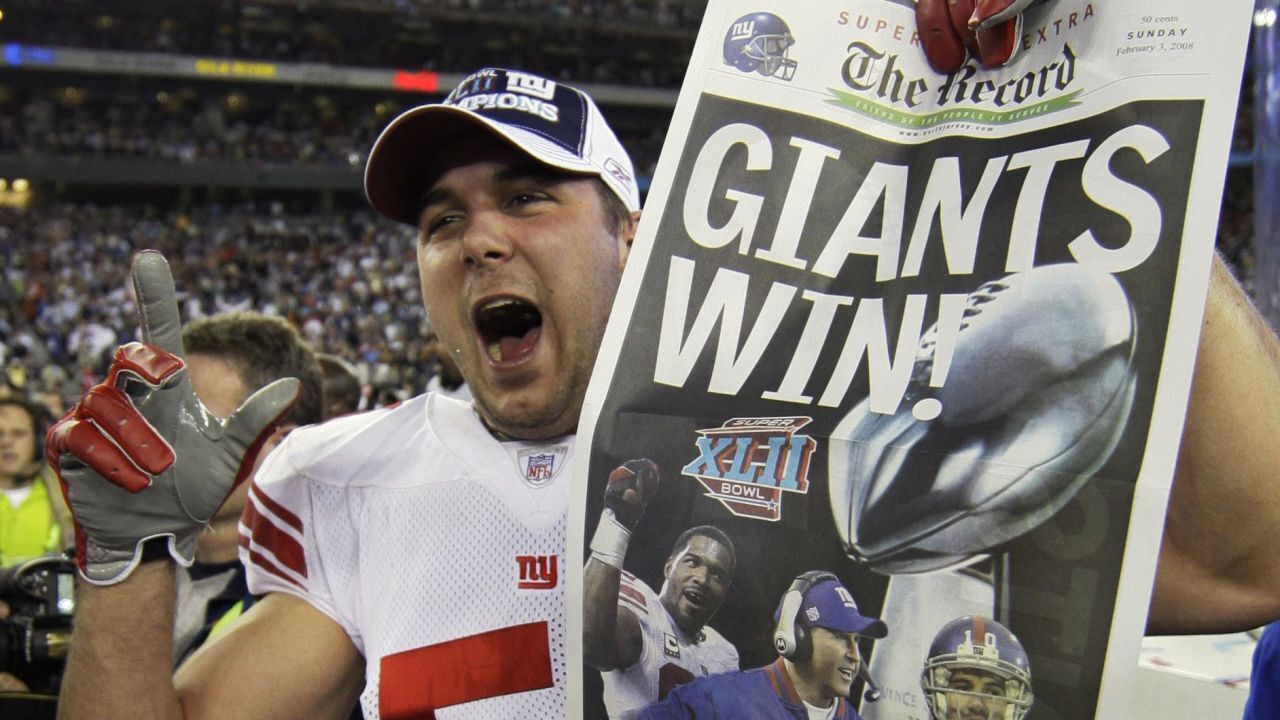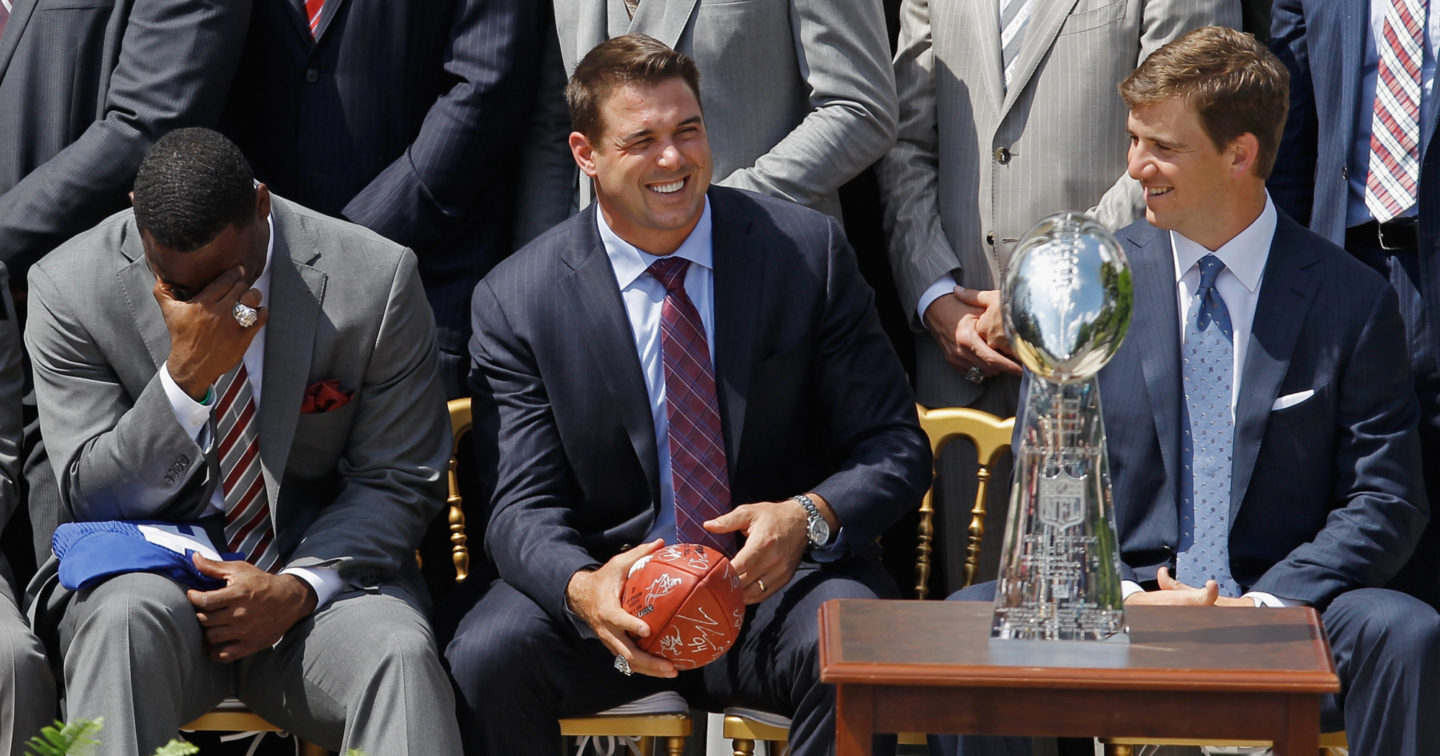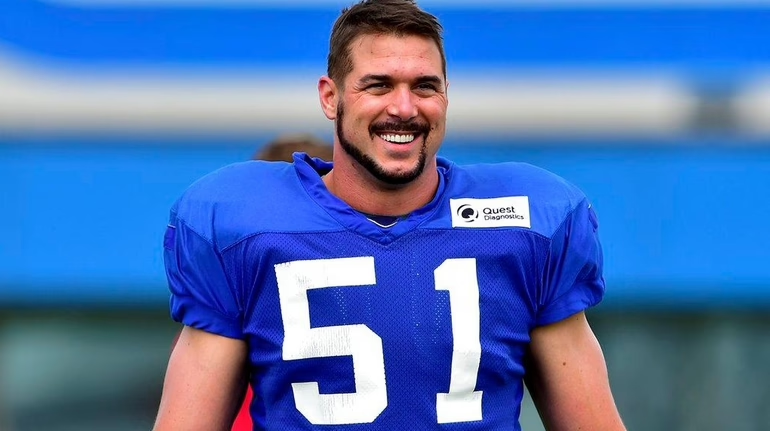
Catching Up With Former Player Rep: Zak DeOssie
Zak DeOssie played 13 seasons as a long snapper with the New York Giants. During his time with the team, he became a 2-time Pro Bowl selection and a 2-time Super Bowl champion. He attended and played college ball at Brown University, where he also earned 3-time First-team All-Ivy League honors. We sat down with Zak and he gave us insight into his life during and after football.

What inspired you to become a Player Rep?
I think being a second-generation football player you have sort of a different perspective on the opportunity of playing in the NFL. My dad was also a Player Rep during his 12-year career, maybe for six or seven years. As a Player Rep, I wanted to be able to involve myself in making the game better for players and future generations. You know the incentives there as a second-generation player, but also seeing what that transition looks like from a kid's perspective seeing when my dad retired and went to the real world. It was important for me, and I think also, selfishly, it's a great thing to have on a resume and sort of grow as a person at a very young age. I was fortunate that my teammates entrusted me to represent them on their behalf and have their interests in mind while representing them and voting at the negotiating table.
What lessons and experiences were you able to take away from being a Player Rep?
I think the biggest thing is that everyone has their ideas and solutions to the problems at hand. But the collaborative effort of the Union and the players is a beautiful thing. It's sort of sacred and even if you think you have a great cookie-cutter solution to a problem, it's sometimes not the answer. So, the biggest thing I took away is learning how to listen to other perspectives, and other players, and try and bring in as much information to make the best-calculated decision, whether it be a vote or whatever it may be, to keep the players' interests in mind. I remember I came in as a young man thinking I had all the answers and then sure enough, started listening and understanding the concerns and what not for us as current players at the time and being able to hear and understand and think outside the box of what I was used to as an individual. Being a part of that was so special for me and so informative. It taught me patience and listening are just as important as voicing my own opinion.

Why should more players look to get involved/be active within the NFLPA?
I think as an active player, everyone knows how to play football and they know the crash and tools how to get there and maintain. But I think if you're not trying to grow and learn about the sort of business that you're in, whether it be just from a pure benefits download and make sure you’re utilizing every resource that's made available to you, to just understand how these decisions are made and the pure democracy of it, and the democratic process, and what are the strings that are being pulled on either side of the negotiating table? It's just fascinating. Being a part of that and wanting to learn more in hopes of getting into the NFL, and certainly the players, into a better situation than when I originally arrived and just trying to make it better for the next generation.
What is a piece of advice that you have for players transitioning out of football?
I would say no one knows what they want to do when they grow up. Everyone can have ideas and I tell current players now that once you figure out how to stay in the league and maximize your career professionally in football, you should always be thinking about what's next after the fact. In that regard, how do you use football more than football uses you? So having that sort of mindset in the offseason and thinking about where you can intern, where you can do a shadowing internship, I don't care, if you're doing something to sort of build your career after football and make connections that you otherwise wouldn't if you weren't out there sourcing. Just talk to people, find a mentor, and find a player who's done the transition. It's all about communicating, talking, and putting yourself out there. And I think there's no cookie-cutter answer here. Everyone has a different preference for what they want to do after football, but you won't know until you start trying something. I've had two different jobs since I retired in 2020, aside from being a Trust captain. The first job I was excited about, I learned a lot. Then I also learned that instead of being on the sales side and finance, I wanted to be on the buy side. Now I'm on the buy side doing private equity and I wouldn't have known that unless I dived in. So, I recommend you guys always communicate with former players, be honest with yourself, and make sure you're making the most of the time that you have in the offseason. As a former long snapper, people forget real quick that you played in the NFL. But it doesn't matter if you're a long snapper or a quarterback, when you're playing people want to open doors for you and hear your stories. I would say use that as much as you can to find the right network of mentors and people you can communicate with and potentially figure out what it is you want to do when you grow up.
What are you doing now in your career?
I'm the director of business development at L3 Capital. We're an SBIC fund and we focus on lending to lower-middle markets across the United States. We're a $250 million fund and we focus on helping small businesses with growth capital. So, a private equity shop will come in, they'll buy said business, and we'll sit alongside the management company and provide that debt capital on each deal as we see fit. It's a fascinating business, a lot of fun, and you're helping the American dream. These people have been working their tails off, doing whatever business it is, and when we bring in our capital, it's sort of transformative and we get to watch these people who have worked their tails off for so long, grow their business to the next level. So, we have our incentives as a private equity shop to make the right decisions obviously, but we're also helping people who really put in the work overtime to get to where they want to go.

How have you applied the lessons you learned playing football to your post-playing career?
I think every player can relate to the idea of constructive criticism and a level of self-awareness. We've all been in the room after a loss, and we've made mistakes on the field. But you learn to grow from those mistakes and be open to hearing constructive criticism, or any sort of criticism. I think it's a very valuable tool as you're trying to grow as a human outside of football afterwards. No one has all the answers and it's okay to learn from your experiences and be self-aware of where you're at and where you want to go. And, being a football player, there's a clear goal in mind and you know what you have to do to achieve that goal. You have to eat healthy, work out, put in the time, study, etcetera, etcetera. Be a good teammate and perform. I draw on that in my current role and I map out my calendar year, and I set goals, and I work my butt off to get to those goals. It stems from football, and it sets us up for a way to understand the plan and execute how to get there. Having a little thick skin from being used to constructive criticism is good as well. Lean into that, and at the end of the day, if you don't have the answers, that's fine. You just have to get out there and ask someone. I feel like I learned that in football. If I didn't know what I was doing, I'd ask a vet, I'd ask an older guy, I’d ask my mentor, I’d ask my coach. Building a good, strong network around you that you can lean on just like you did in the locker room makes the transition a lot easier and much more efficient.
What’s one piece of advice that you wish you had early in your career?
I did a lot of internships when I played and call it three weeks or a month and a half long internships. I think I would have done more of that just to expose myself to different industries. I knew I always wanted to be in finance because that's what I studied at Brown University when I graduated in '07. But I didn't really know what that meant until I got into my seat. Interning gives you a little taste, but I would have spread it out and tried different industries. So, there are a lot of different industries in finance. When I started doing private wealth, I was hyper-focused on private wealth. I didn't even know this buy-side existed. I knew it did, but I didn't know about it. If I could go back in time, I'd tell myself to always have conversations with different people. Ask what they do, why they like it, how they got there, and you can formulate your own ideas as you go on instead of just putting your eggs in one basket and thinking that you have all the answers.
What does the NFLPA Fraternity mean to you?
It means we have a giant network of very high-achieving, capable people who care about each other. Only those who have put on the uniform know what it takes to step on the field and be that teammate that your other teammates need at that moment. That's something that should be celebrated, something that should always be top of mind, and we should be very proud of it because we all worked our tails off. We avoided injuries as best we could and we put our blood, sweat, and tears into our craft. Whether you win or lose, you build lifelong friendships that will always remain. Making sure that you always carry that with you and always be a part of this fraternity is for me very important and gratifying. I'm very grateful for the opportunity to play in the NFL, but even more grateful for the people I played alongside, those who came before me and those who are playing now. I think it's a great thing.